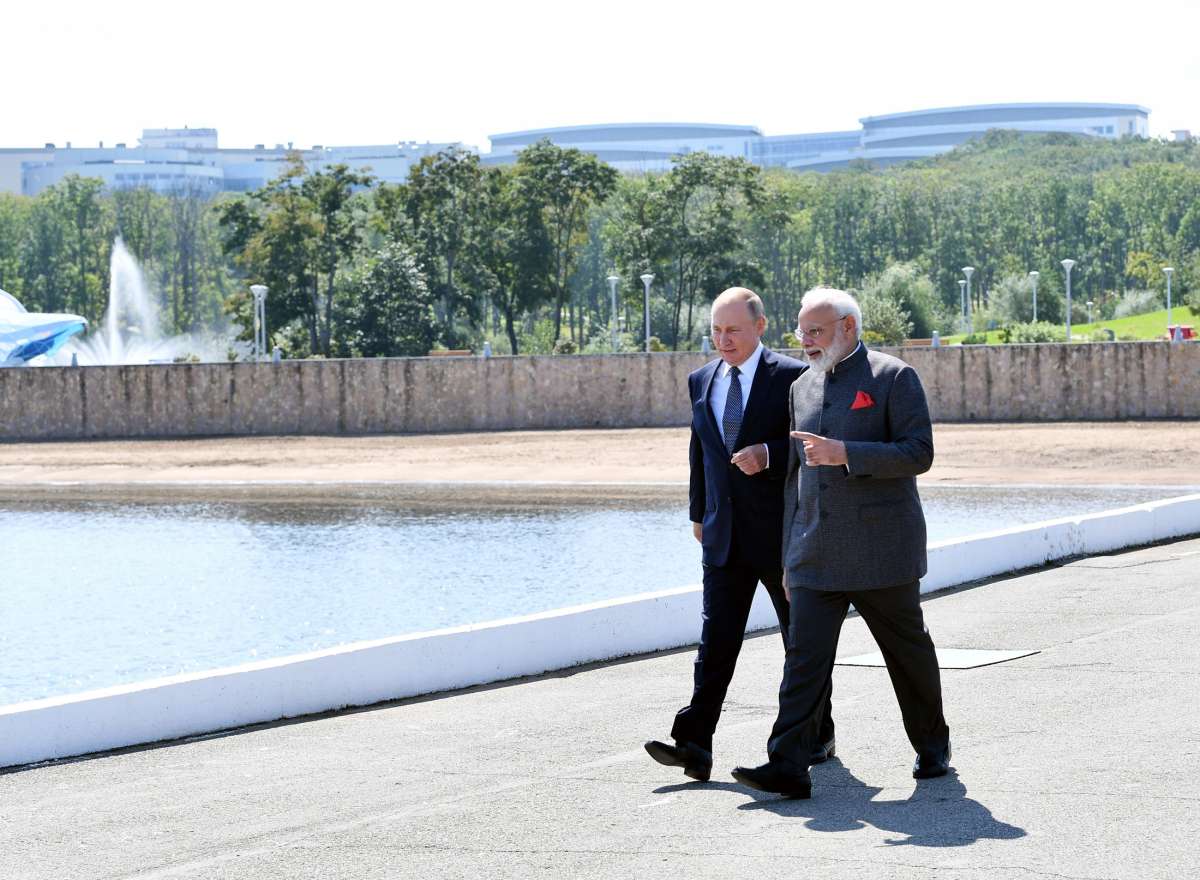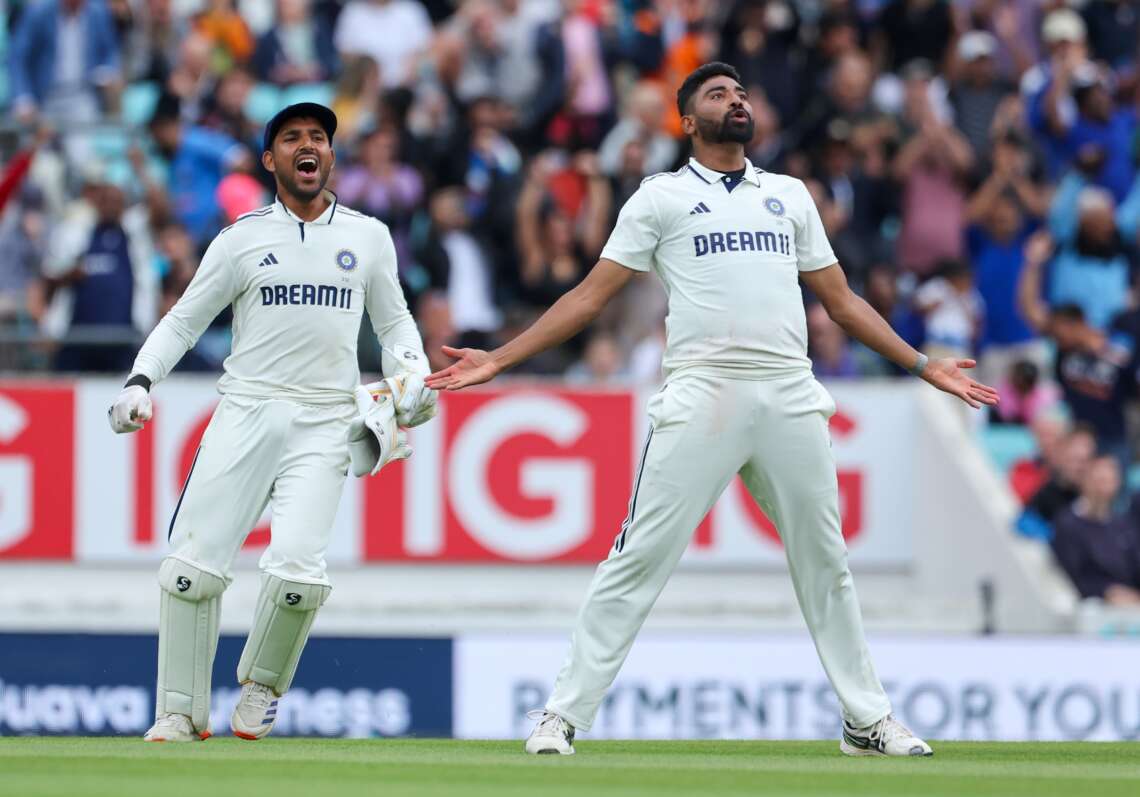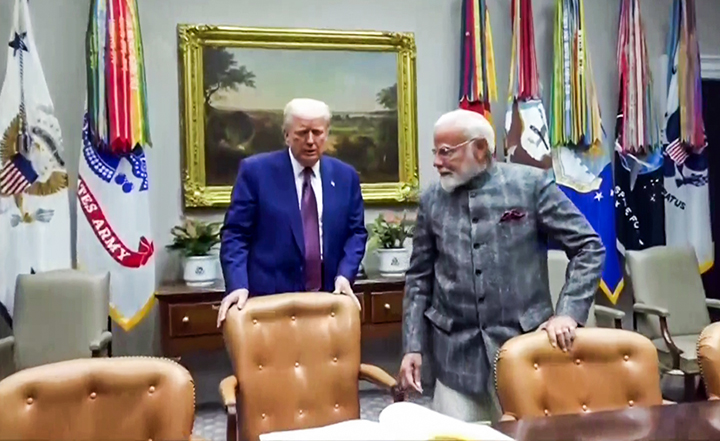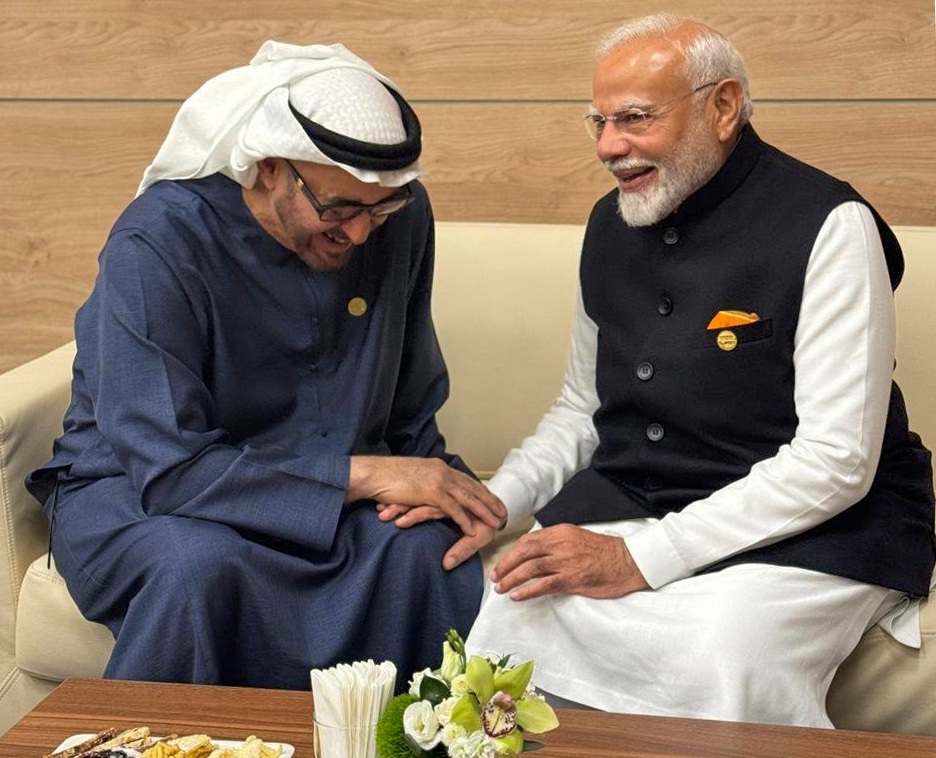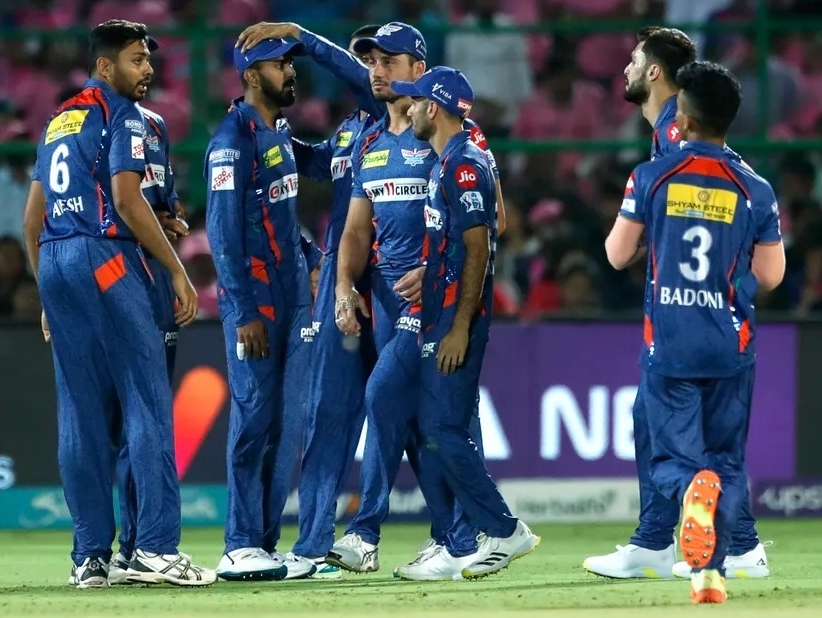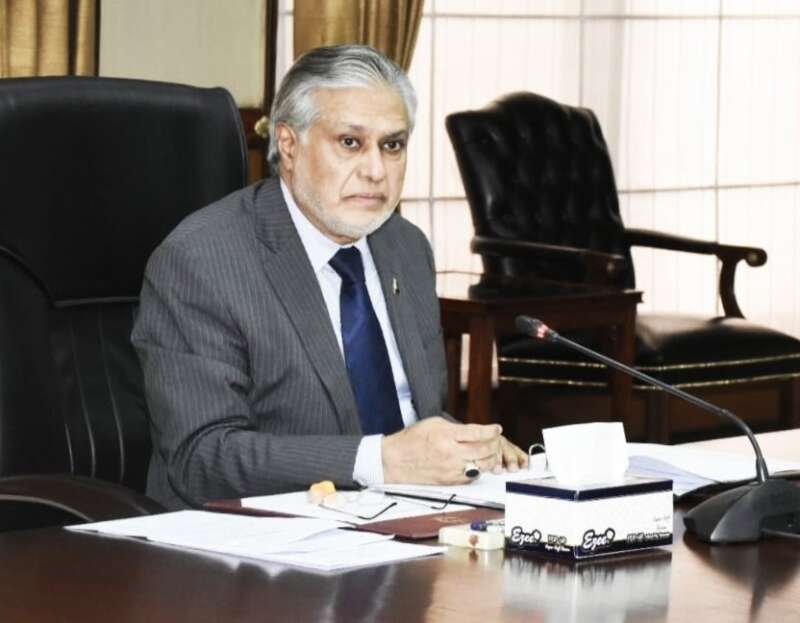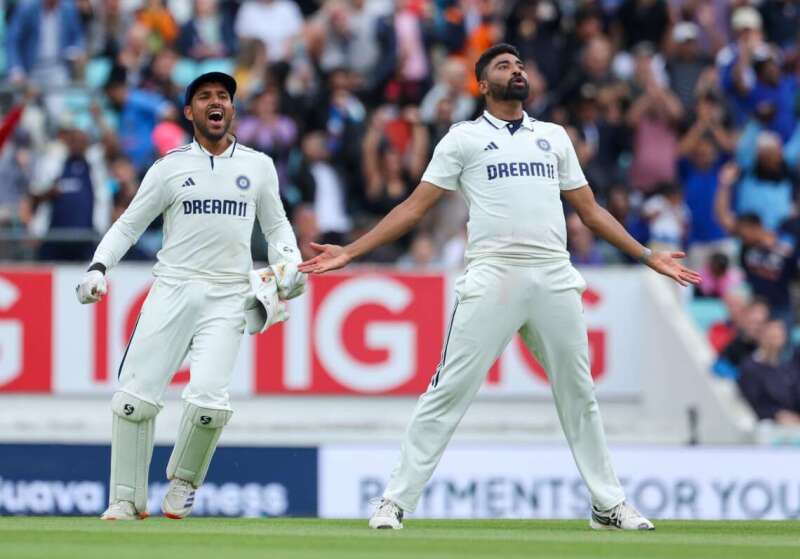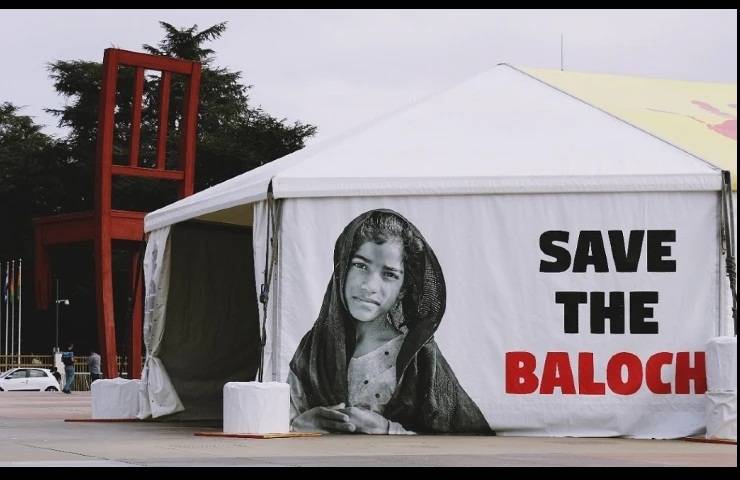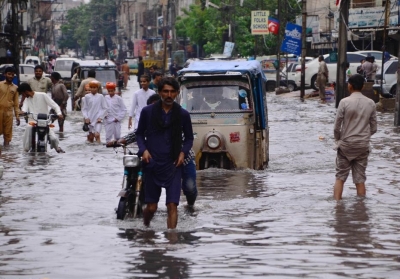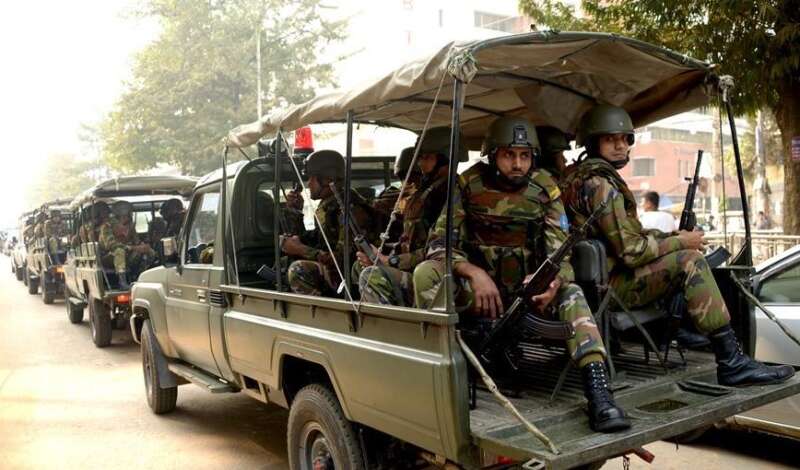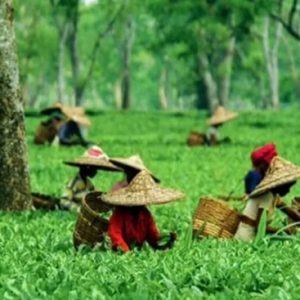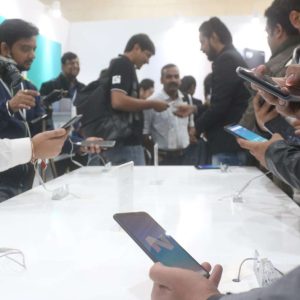The importance of connectivity initiatives, including the International North-South Transport Corridor (INSTC) as well as the Eastern Maritime Corridor (Chennai-Vladivostok Corridor) is one area that India has listed which would play a key role in expanding and diversifying the bilateral trade and economic cooperation, a report by Ateet Sharma
Citing that the trade turnover between Russia and India has exceeded 35 billion USD, Moscow is keen on expanding its partnership with New Delhi in specific industries such as railway and heavy machinery, aircraft building, shipbuilding, metallurgy, and chemicals.
On the second and final day of his visit to the Indian capital on Tuesday, Russian Deputy Prime Minister and Minister of Trade and Industry, Denis Manturov held bilateral meetings with Commerce and Industry Minister Piyush Goyal and Finance Minister Nirmala Sitharaman.
External Affairs Minister S Jaishankar and the Russian Deputy PM also co-chaired the 24th session of the Inter-governmental Commission which is a mechanism for monitoring the bilateral progress of trade and economic cooperation between the two countries.
As reported by IndiaNarrative.com on Monday, Manturov also called on National Security Advisor (NSA) Ajit Doval to discuss a range of bilateral issues concerning the India-Russia Special and Privileged Strategic Partnership.
At the India-Russia Inter-governmental Commission on Trade, Economic, Scientific, Technological and Cultural Cooperation (IRIGC-TEC), the Deputy Prime Minister of Russia spotlighted how relations between Russia and India continue progressively, developing in all directions, despite “negative external factors” since the start of Ukraine conflict.
Both sides discussed bilateral cooperation in the areas of trade, finance, industry, energy sector, including nuclear power, agriculture, transport, healthcare, education and culture.
“According to the last year results, the trade turnover between our countries increased by 2.6 times, exceeding 35 billion USD. We have completed ahead of schedule the task set by the leaders of our countries to reach the level of bilateral trade of 30 billion USD by 2025,” said Manturov.
The Ministry of External Affairs stated that the two sides reviewed the entire gamut of bilateral trade and economic relationship, and agreed to work together to unlock its full potential including through addressing the trade deficit and market access issues.
Manturov, in his meeting with Commerce and Industry Minister Piyush Goyal, discussed current issues and prospects for cooperation in industries like railway, aircraft building, shipbuilding, etc.
Earlier this month, IndiaNarrative.com reported on Transmashholding, a leading Russian company in railway engineering, getting ready to sign a supply agreement with Indian Railways in May to jointly manufacture 120 16-car Vande Bharat Express high-speed trains.
The Russian-Indian consortium of Transmashholding (TMH) and Rail Vikas Nigam Limited (RVNL), which functions as an extended arm of the Ministry of Railways, won the tender for the production, supply, and maintenance of 120 passenger electric trains (1920 cars) to India.
On Tuesday, Manturov invited Goyal and the Indian enterprises to take part in the international industrial exhibition INNOPROM in July 2023 in Yekaterinburg.
“The need to intensify the work on the preparation of a Free Trade Agreement between the EAEU and India to increase and diversify trade turnover was also noted,” said the Russian side.
Positive dynamics in India-Russia trade and shared priorities of deeper and wider bilateral commercial cooperation were accentuated during the Russian Deputy PM’s meeting with Finance Minister Nirmala Sitharaman.
“The necessary steps to ensure uninterrupted mutual settlements, primarily with the use of national currencies, were discussed. Mutual interest in concluding a Russian-Indian agreement on the encouragement and mutual protection of investment was noted,” said a statement from the Russian side.
The importance of connectivity initiatives, including the International North-South Transport Corridor (INSTC) as well as the Eastern Maritime Corridor (Chennai-Vladivostok Corridor) is one area that India has listed which would play a key role in expanding and diversifying the bilateral trade and economic cooperation.
“The Eastern Maritime Corridor, I think, fits in with our goal, what is called ‘Act East Policy’, as well as the Russian policy of having the Far East come in as an additional driver of the economy. So, I think there is a synergy there which is waiting to be tapped,” said EAM Jaishankar at India-Russia Business Dialogue on Monday.
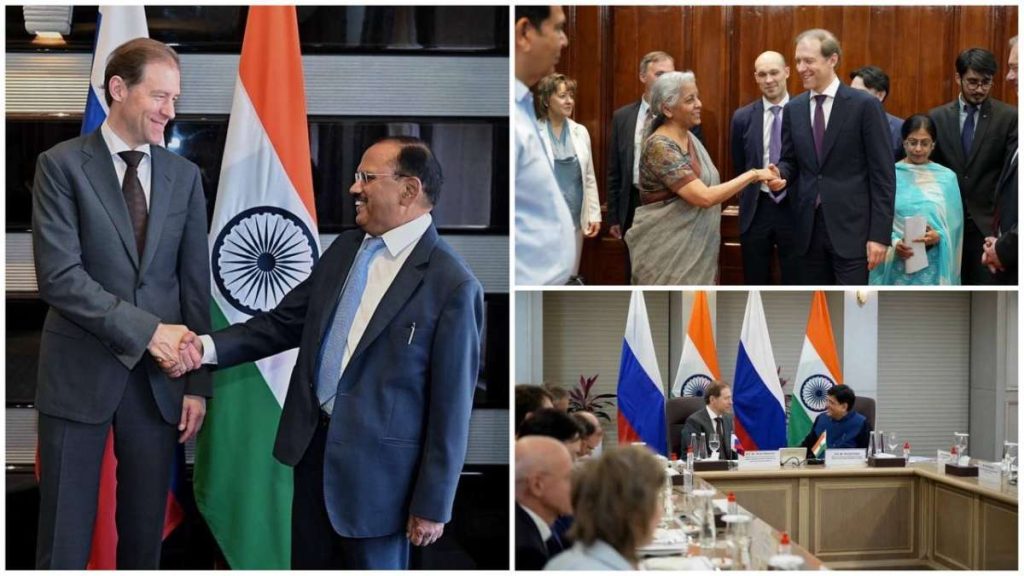
Doval’s key role
NSA Doval is playing a key role in advancing the India-Russia partnership in key areas in spite of the volatile global geostrategic situation.
Last month, Doval hosted Russian security chief Nikolai Patrushev in the Indian capital as both had a thorough exchange of views on topical regional and international issues while emphasising the progressive development of the India-Russia ties.
“Ways have been outlined for further cooperation between Russia and India in the field of security, as well as in the implementation of a number of joint economic projects,” said Patrushev’s office after his meeting with NSA Doval.
Patrushev, who is Secretary of the Russian Security Council, also met Prime Minister Narendra Modi while he was in New Delhi to attend the meeting of the National Security Advisors (NSAs) of member countries of the Shanghai Cooperation Organisation (SCO).
The Delhi visit of 71-year-old former Director of Russia’s Federal Security Service (FSB) took place after Jaishankar and Manturov co-chaired virtually an IRIGC-TEC meeting in the first week of the month.
Earlier in February, Russian President Vladimir Putin held a separate one-hour meeting with NSA Doval on the sidelines of a regional security conference on Afghanistan in Moscow.
Putin is keen on developing Russia’s strategic interests in the context of deepening Eurasian integration based on its partnership with Belarus, the Eurasian Economic Union, the Collective Security Treaty Organization, the CIS, the formation of a large Eurasian partnership, and the further strengthening of the Shanghai Cooperation Organization and BRICS.
New transport arteries
The geography of partnership between India and Russia continues to expand beyond New Delhi and Moscow to the other regions of both countries.
After Novgorod and Samara, representatives from various companies from Russia’s Orenburg region are currently touring India to intensify bilateral trade and economic cooperation.
Later this month, the Federation of Indian Export Organisations (FIEO) is mounting a B2B delegation of food and agri exporters to Russia with the support of the Indian Embassy in Moscow and the Consulate Office in Saint Petersburg.
The product coverage of travelling delegation would include all food and agri items including fruits and vegetables, meat and marine products, cereals, millets, pulses, spices, rice, tea, coffee and other beverages, dairy and poultry, dry fruits, honey, bakery and soya products, ready to cook/ready to eat, etc.
Quite significantly, FIEO stated that in addition to the B2B meetings in Moscow and Saint Petersburg, Indian Ambassador to Moscow Pavan Kapoor will lead the Indian delegation to Astrakhan for meetings with counterparts/B2B o¬n April 27 at the invitation of Governor Igor Yuryevich Babushkin.
Located in the southeast of the European part of Russia, in the lower reaches of the Volga River, Astrakhan is not only rich in agriculture and also plays a critical role in logistics as it lies o¬n the Caspian Sea.
The region is part of the Southern Federal District and is a border region: by land, its territory borders with Kazakhstan, and by sea with Azerbaijan, Iran, Kazakhstan, and Turkmenistan.
It also plays an important role in India’s plan for the improvement of the transport and logistics architecture of the Eurasian region through the International North-South Transport Corridor (INSTC) – the 7,200 km-long multimodal trade corridor which will start from Mumbai, with nodes in West Asia, Central Asia, Caucasia, and Russia covering large swathes of territory in the landlocked region.
India has been pushing extensively for the utilization of New Delhi-backed Chabahar port in Iran – and its inclusion in the INSTC framework – since it will provide a great option as an alternative to the Suez Canal with a massive reduction in travel time and savings.
Last year, Tehran tested the INSTC connectivity routes with the successful completion of the first transit of goods from Astrakhan to Mumbai.
Russian President Vladimir Putin too has spoken about advancing the transport artery in the Caspian Basin until 2030, focusing on the development of relevant infrastructure at the ports of Astrakhan, Olya, and Makhachkala.
The pace of military-technical and economic cooperation, along with the trade turnover as a whole, continues to grow between New Delhi and Moscow ahead of the India-Russia Inter-Governmental Commission on Trade, Economic, Scientific, Technological and Cultural Cooperation (IRIGC-TEC) meeting later this month.
External Affairs Minister S Jaishankar co-chaired the online IRIGC-TEC negotiations with Russian Deputy Prime Minister Denis Manturov, who is also the country’s Minister of Industry and Trade, during online discussions held last month to unlock the “full potential” of India-Russia bilateral trade and economic relations.
The meeting will also take stock of the activities of working groups in the field of industry, energy, agriculture, pharmaceuticals, finance, civil aviation, etc.
As Indian exports to Russia continue to jump and both countries work o¬n trading in Rupee and Ruble, the ‘full-scale meeting’ of the commission would clearly demonstrate how extensive the agenda of India-Russian relations is.
The Inter-Governmental Commission meeting will be followed by the visit of Russian Foreign Minister Sergei Lavrov to attend the Foreign Ministers’ Summit of the Shanghai Cooperation Organisation (SCO) which will be held under India’s chairmanship in Goa on May 4-5.
Analysts have not ruled out Russia pushing for a meeting between Jaishankar, Lavrov, and Chinese Foreign Minister Qin Gang under the RIC (Russia-India-China) format on the sidelines of the SCO event in Goa.


